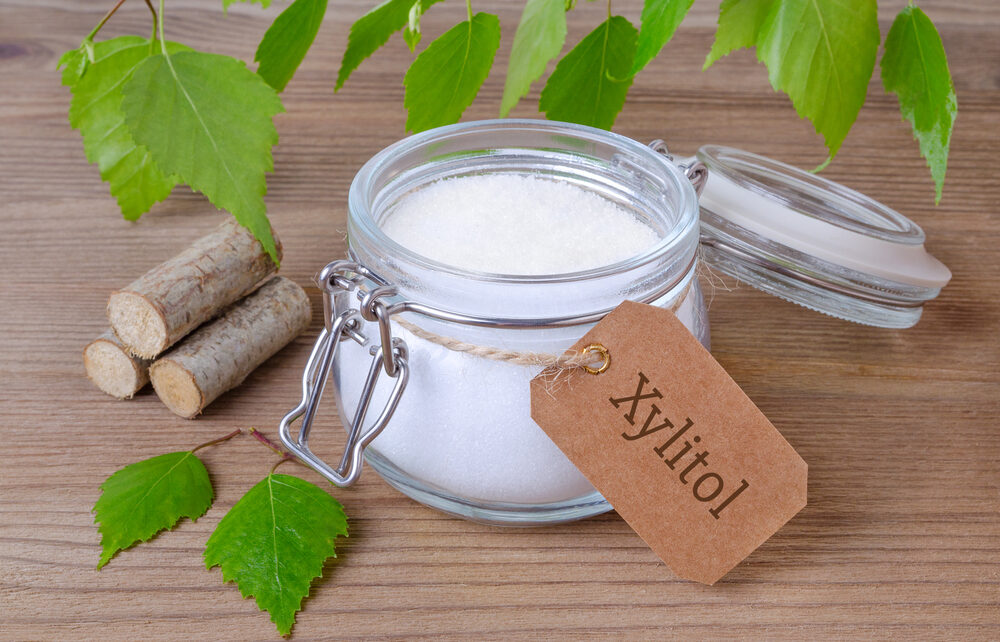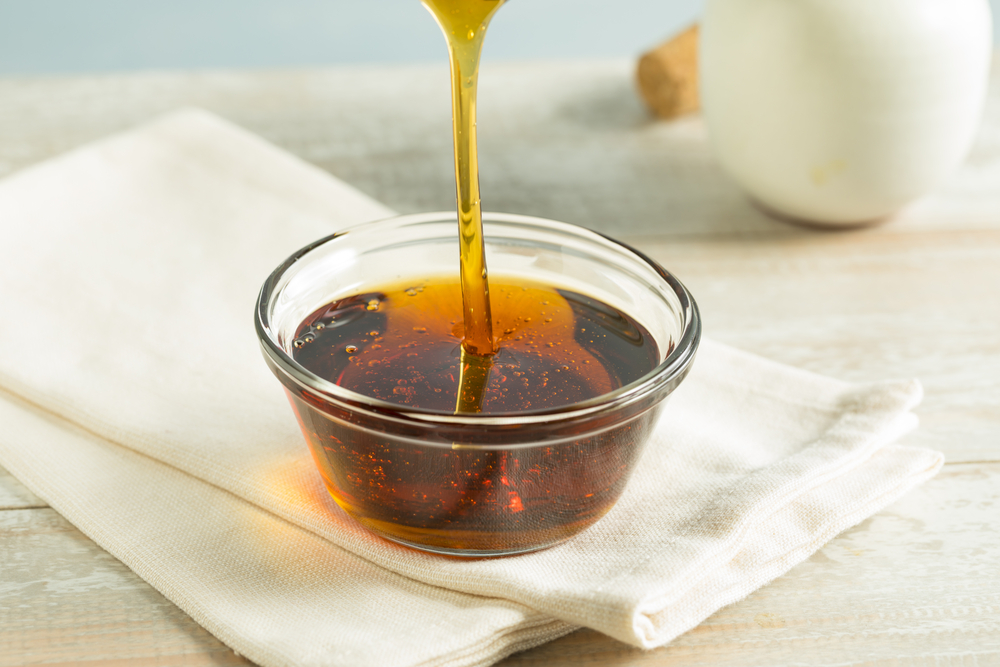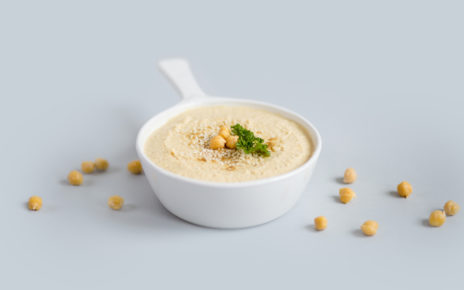Is Xylitol Keto Friendly? Here’s all we know.
You might have heard about xylitol as a popular sugar substitute and wondered what exactly it is and how it can benefit you. It might be intriguing to explore if this low-calorie sweetener can fit into your keto lifestyle, especially when sugar cravings hit hard and you NEED a fix that won’t raise blood sugar or insulin levels.
In this section, we will dive deeper into the world of xylitol, exploring its definition, origin, common uses, potential health benefits, and ultimately, answer the question “is xylitol keto friendly?”
What Exactly Is Xylitol?
Xylitol is a sugar alcohol that is naturally occurring and found in small amounts in various fruits and vegetables, and even hardwood trees like birch. It is not an artificial sweetener. Derived primarily from birch wood or corn cobs, xylitol is a white crystalline powder that looks and tastes like sugar but boasts some unique characteristics that set it apart from regular table sugar.
What makes xylitol special is that it has fewer calories and a lower glycemic index than sugar, which means it has a reduced impact on your blood sugar levels. This is particularly appealing to those looking to manage their blood sugar or follow a low-carb diet, such as the ketogenic diet.
Common Uses of Xylitol
Due to its unique properties, xylitol has found its way into various food products and everyday items. Here are some common ways you might encounter xylitol:
Keto Sweetener
Xylitol is often used as a sugar substitute in various food products, including sugar-free chewing gum, candies, baked goods, and beverages. It is considered a great alternative for those watching their calorie intake or aiming to follow a low-carb lifestyle.
Dental Products
You might be surprised to find xylitol in toothpaste, mouthwash, and other oral care products. This is because xylitol has been shown to inhibit the growth of harmful bacteria responsible for tooth decay, making it a valuable addition to your dental routine.
Pharmaceutical Products
Xylitol can also be found in certain pharmaceutical products, such as throat lozenges, cough syrups, and nasal sprays. It serves as a sweetening agent and may provide additional benefits, such as preventing ear infections and reducing symptoms of respiratory issues.
Cooking and Baking
If you enjoy experimenting in the kitchen, xylitol can be used as a sugar substitute in many recipes. However, it’s essential to remember that xylitol’s sweetness is approximately the same as sugar, but it behaves differently when heated. This means you might need to make adjustments to your recipes or seek out specific xylitol-friendly alternatives.
Benefits of Xylitol
Xylitol’s popularity is not just due to its sugar-like taste and lower calorie content; it also boasts several health benefits that make it an attractive option for health-conscious individuals:
- Blood Sugar Control: With a glycemic index of only 7, xylitol has a minimal impact on blood sugar levels, making it a suitable option for diabetics and those looking to manage their blood sugar.
- Dental Health: As mentioned earlier, xylitol can help prevent tooth decay by inhibiting the growth of harmful bacteria in the mouth. Regular consumption of xylitol-sweetened products may reduce the risk of cavities and improve overall dental health.
- Weight Management: With fewer calories than sugar, xylitol can be a helpful addition to a weight management plan. Using xylitol instead of sugar can help you reduce your overall calorie intake without compromising the sweetness of your favorite treats.
- Ear and Respiratory Health: Some studies suggest that xylitol may help prevent ear infections and alleviate symptoms of respiratory issues by reducing harmful bacteria in the nasal passages and upper respiratory tract.

Xylitol’s Impact on Blood Sugar and Insulin Levels
Xylitol’s Glycemic Index
The glycemic index (GI) is a ranking system that measures how quickly a carbohydrate-containing food raises blood sugar levels, with values ranging from 0 to 100. Foods with a lower GI have a reduced impact on blood sugar or insulin levels, making them more suitable for people who need to manage their blood sugar levels, such as diabetics or those following a ketogenic or low-carb diet.
Xylitol has a low GI of around 7, which is considerably lower than regular table sugar, which has a GI of around 65. This significant difference highlights xylitol’s potential to be a beneficial keto-friendly sweetener and sugar substitute for those aiming to minimize blood sugar fluctuations.
Comparison with Other Sugar Substitutes
Xylitol’s low glycemic index makes it an excellent keto sweetener option. To better understand how xylitol compares, let’s look at the GI values of some common sugar alternatives:
- Erythritol: GI of 1
- Stevia: GI of 0
- Sucralose: GI of 0
- Maltitol: GI of 35
- Aspartame: GI of 0
While there are sugar substitutes with even lower GI values, xylitol is favored by many due to its taste, texture, and versatility in cooking and baking. It is also worth noting that the impact of sugar substitutes on blood sugar levels can vary from person to person, so it is essential to consider individual preferences and experiences when choosing a sugar alternative.
Studies have found that xylitol has a minimal impact on blood sugar and insulin levels. In a study published in the Journal of Nutrition, researchers compared the effects of xylitol, glucose, and sucrose on post-meal blood glucose and insulin levels. They discovered that xylitol consumption resulted in significantly lower blood glucose and insulin levels compared to glucose and sucrose.
This finding suggests that xylitol is a suitable sweetener for diabetics and individuals who need to monitor their blood sugar closely. However, it is essential to remember that individual responses may vary, and it is always recommended to consult with a healthcare professional before making significant dietary changes.
Xylitol’s Caloric and Carbohydrate Content
Calories per Gram
One advantage of using xylitol as a sugar substitute is its lower calorie content compared to regular sugar. While sugar has approximately 4 calories per gram, xylitol contains only 2.4 calories per gram. This reduced caloric content can be beneficial for individuals trying to lose weight or maintain a healthy weight, as it allows them to enjoy sweet treats with fewer calories.
Carbohydrate Content
Although xylitol is classified as a carb, it is considered a sugar alcohol, which means it doesn’t have the same impact on blood sugar levels as other carbohydrates. Xylitol contains 100% net carb by weight; however, most of these carbs are not absorbed by the body and don’t contribute to raising blood sugar levels.
Comparison with Other Sugar Substitutes
To better understand xylitol’s calorie and carbohydrate content, let’s compare it with other popular sugar substitutes:
- Erythritol: 0.2 calories per gram, 100% carbs (not absorbed)
- Stevia: 0 calories, 0 carbs
- Sucralose: 0 calories, 0 carbs
- Maltitol: 2.1 calories per gram, 100% carbs (partially absorbed)
- Aspartame: 4 calories per gram
As the comparison above shows, xylitol has a low carb count compared with maltitol and aspartame, two sugar substitutes commonly used in the food industry. However, it has a higher calorie count than erythritol, a sugar alcohol with a lower glycemic index and fewer calories.
While xylitol has some calories and carbohydrates, its glycemic index, caloric content, and carbohydrate content make it a popular choice for those following a ketogenic or low-carb diet. Additionally, its versatility in cooking and baking makes it an excellent option for those looking to satisfy their sweet tooth without compromising their dietary goals.
Overall, xylitol has a unique profile that sets it apart from other sugar substitutes. Its low glycemic index, minimal impact on blood sugar and insulin levels, and lower calorie and carbohydrate content make it an attractive option for individuals who need to manage their blood sugar levels or maintain a healthy weight. However, as with any dietary change, it’s always recommended to consult with a healthcare professional before incorporating xylitol or any other sugar substitute into your diet.
Potential Side Effects and Concerns
While xylitol is generally considered safe for human consumption, like any food or supplement, it can have potential side effects and concerns that individuals should be aware of.
- Gastrointestinal Issues: One of the most common side effects of consuming xylitol is gastrointestinal discomfort. This can include bloating, gas, diarrhea, and stomach cramps. These symptoms may occur due to the body’s inability to digest xylitol fully. However, these symptoms usually subside within a few hours of consuming xylitol, and they are not typically severe or long-lasting.
- To minimize the risk of gastrointestinal discomfort, individuals can start with a small amount of xylitol and gradually increase their intake over time. Additionally, it’s essential to consume xylitol in moderation and follow the recommended daily intake guidelines.
- Headaches: Some individuals may experience headaches after consuming xylitol, although this is relatively rare.
- Allergic reactions: Although rare, some individuals may be allergic to xylitol, which can cause symptoms such as hives, itching, and difficulty breathing.
- Osteoporosis: There is some concern that xylitol may reduce calcium absorption, which could potentially increase the risk of osteoporosis. However, more research is needed to determine the extent of this risk.
- Tooth decay: Although xylitol is often promoted as a way to prevent tooth decay, some studies have suggested that excessive xylitol consumption may actually increase the risk of cavities. This may be due to the fact that xylitol can be metabolized by oral bacteria, which can produce acid that erodes tooth enamel.
Xylitol’s Toxicity to Pets
While xylitol is safe for human consumption, it can be toxic to pets, particularly dogs. When ingested by dogs, xylitol can cause a rapid release of insulin, leading to hypoglycemia, seizures, liver failure, and potentially even death.
As little as 0.1 gram of xylitol per kilogram of body weight can be toxic to dogs, and symptoms can occur within 10-60 minutes of ingestion. It’s essential to keep xylitol-containing products, such as sugar-free gum, mints, and candies, out of reach of pets and to seek veterinary care immediately if ingestion is suspected.
Safe Daily Intake
The acceptable daily intake (ADI) of xylitol varies depending on the country, but the World Health Organization (WHO) has set an ADI of up to 50 mg per kilogram of body weight per day. This means that a person weighing 70 kilograms could safely consume up to 3.5 grams of xylitol per day.
However, it’s essential to note that the ADI is not a recommended intake level and is set with a safety margin to account for individual differences in metabolism and potential health effects. Additionally, consuming excessive amounts of xylitol can lead to gastrointestinal discomfort and potential adverse effects on blood sugar levels.
How to Incorporate Xylitol into a Keto Diet
Xylitol is a popular sugar substitute for those following a ketogenic or low-carb diet, as it has a low glycemic index and minimal impact on blood sugar and insulin levels. It can be used in a variety of keto-friendly recipes and is an excellent alternative to sugar in cooking and baking.
Keto-Friendly Recipes Using Xylitol
Xylitol can be used in a wide variety of keto-friendly recipes, from desserts and snacks to savory dishes and condiments. Some popular keto recipes that use xylitol include:
- Keto Brownies: These fudgy, chocolatey brownies use xylitol instead of sugar for a low-carb, keto-friendly treat.
- Keto Lemon Bars: These tangy, sweet lemon bars are made with xylitol instead of sugar for a low-carb, keto-friendly dessert.
- Keto Ketchup: This homemade ketchup recipe uses xylitol instead of sugar for a low-carb, keto-friendly condiment.
- Keto Peanut Butter Cups: These delicious peanut butter cups are made with xylitol instead of sugar for a low-carb, keto-friendly treat.
Tips for Using Xylitol in Cooking and Baking
When using xylitol in cooking and baking, there are a few tips to keep in mind to ensure the best results:
- Start with a small amount: Xylitol is much sweeter than sugar, so it’s important to start with a small amount and adjust to taste.
- Use a 1:1 ratio: In most recipes, you can substitute xylitol for sugar in a 1:1 ratio. However, it’s important to note that xylitol may not caramelize like sugar, so it may not be the best choice for recipes that rely on caramelization, such as caramel sauces.
- Consider the texture: Xylitol can have a slightly different texture than sugar, which can impact the texture of baked goods. To ensure the best results, it’s recommended to use a finely ground xylitol, such as powdered xylitol, for baking.
- Be mindful of pets: Remember that xylitol is toxic to pets, so be sure to keep xylitol-containing products away from pets and be mindful of using xylitol in recipes that may be accessible to pets.
Best And Worst Keto Sweetener Alternatives for Those Sensitive to Xylitol
While xylitol is generally well-tolerated, some individuals may be sensitive to xylitol and experience gastrointestinal discomfort or other side effects. In these cases, there are several alternative sugar substitutes that can be used instead of xylitol, including:
- Erythritol: Like xylitol, erythritol is a sugar alcohol with a low glycemic index and minimal impact on blood sugar levels. It is also well-tolerated and has a mild, sweet taste.
- Stevia: Stevia is a non-nutritive sweetener that is derived from the leaves of the stevia plant. It has a sweet taste without the calories or carbohydrates of sugar.
- Monk Fruit: Monk fruit sweetener is non-nutritive and is derived from the monk fruit plant. It has a sweet taste without the calories or carbohydrates of sugar and is also low-glycemic.
Frequently Asked Questions
Does Xylitol Raise Blood Pressure?
No, xylitol does not raise blood pressure. In fact, xylitol has been shown to have potential cardiovascular benefits, such as reducing arterial stiffness and improving endothelial function.
Is Xylitol Hard on The Liver?
No, xylitol is not hard on the liver. It is metabolized by the body in a similar way to other sugar alcohols and is not known to cause liver damage or toxicity.
Does Xylitol Affect Gut Bacteria?
Yes, xylitol can affect gut bacteria. It has been shown to have a prebiotic effect, meaning it can promote the growth of beneficial gut bacteria, such as Bifidobacterium and Lactobacillus.
Does Xylitol Affect Blood Sugar Levels?
No, xylitol has a low glycemic index and does not significantly affect blood sugar levels. It is often used as a sugar substitute for individuals with diabetes or those looking to manage their blood sugar levels.
Is Xylitol Same as Erythritol?
No, xylitol and erythritol are two different sugar alcohols. While they have some similarities, such as a low glycemic index and minimal impact on blood sugar levels, they also have some differences, such as their calorie and carbohydrate content.
Does Xylitol Increase Belly Fat?
No, xylitol does not increase belly fat. In fact, it may have potential weight loss benefits, as it has been shown to reduce calorie intake and promote feelings of fullness.
Does Xylitol Mess with Hormones?
No, xylitol is not known to mess with hormones. It is a sugar substitute that is well-tolerated by most individuals and does not appear to have any significant hormonal effects.
Which Is Healthier Sugar or Xylitol?
Xylitol is generally considered healthier than sugar, as it has a lower glycemic index, fewer calories, and minimal impact on blood sugar levels. However, it’s important to consume xylitol in moderation and follow the recommended daily intake guidelines.
Is It Ok to Use Xylitol Everyday?
While xylitol is generally considered safe for daily consumption, it’s recommended to follow the recommended daily intake guidelines and consume xylitol in moderation. It’s always best to consult with a healthcare professional before incorporating xylitol or any other sugar substitute into your daily diet.
Final Words
For all intents and purposes, xylitol is keto-friendly as it is one of the better sweeteners you can use while adhering to the diet style. Just be sure to use in moderation, and you should be fine as it is “generally recognized as safe “.



